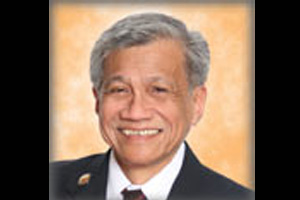
The complaint pointed out that Akbayan’s nominees like incumbent Rep. Walden Bello for the 2013 elections did not belong to the sectors it claimed to represent.
Insisting that Akbayan is already a party in power and that it currently enjoys government support and funding, multisectoral groups and individuals on Wednesday filed in the Commission on Elections (Comelec) a petition for its disqualification from the party-list elections next year.
They said Akbayan had ceased to become a marginalized party because many of its members had become appointees of President Aquino and because it had gained undue advantage over other party-list groups due to the government aid it was receiving.
“The scenario wherein a party-list group has transitioned itself from being a marginalized and underrepresented political party to one that is well-entrenched and well-connected to the present administration, is a new development in the Philippines’ party-list system,” said the petition.
It was the second formal complaint to be filed against Akbayan in the Comelec.
Among the petitioners were poll watchdog Kontra Daya’s Fr. Joe Dizon, Archbishop Emeritus Oscar Cruz, Bayan’s secretary general Renato Reyes Jr., peasant leader Rodel Mesa of Hacienda Luisita’s Ugnayan ng Manggagawa sa Agrikultura, Peter Gonzalez of Pamalakaya-Southern Tagalog and UP student regent Cleve Kevin Robert Arguelles.
The first petition was lodged by Anakbayan and the National Union of Students of the Philippines early this month.
In an interview with reporters Wednesday, Reyes said the petition was meant to disqualify Akbayan from the 2013 elections.
Reyes said the groups filed the petition pursuant to a provision in Comelec Resolution No. 9366 allowing the filing of a verified complaint for removal and/or cancellation of registration of a party-list group or organization.
“There are many parties and groups, out of power, really marginalized and underrepresented that are qualified to represent these sectors,” he added.
High positions
In the petition, the complainants identified at least nine Akbayan members and personalities occupying high appointive positions in the Aquino administration.
The nine are Presidential Adviser on Political Affairs Ronald Llamas and his deputy Ibarra Gutierrez III, Commission on Human Rights Chairperson Loretta Rosales, National Anti-Poverty Commission Chairman Joel Rocamora and appointed spokesperson Risa Hontiveros, GSIS Board of Trustees member Mario Agujo, Social Security System Commissioner Daniel Edralin, National Youth Commission Commissioner Percival Cendaña and Presidential Commission for the Urban Poor Commissioner Angelina Ludovice-Katoh.
The petition also cited a previous statement by Rosales, Akbayan’s chairman emeritus and three-term representative, criticizing then President Gloria Macapagal-Arroyo’s supposed bid to create a “sizable camp” of allies in Congress by “populating the [2010] party-list elections with administration allies.”
It quoted Rosales as saying, “against Comelec’s expectations, packing the party-list contenders with Palace fronts can only be interpreted as a desperate effort by the Palace to fill up the next Congress with GMA (Arroyo) lapdogs.”
‘Bare the list’
The complaint also noted that Akbayan also launched the “Bare the List” campaign to compel the Comelec to identify the nominees of all accredited party-list groups for the 2007 elections, which would help reveal bogus groups allegedly fielded by the Arroyo administration.
“A study of Akbayan’s track record would reveal that it has become what it previously detested and protested against: A lapdog loyalist and a puppet of the present Aquino administration,” the complaint said.
It also pointed out that Akbayan’s nominees like incumbent Rep. Walden Bello for the 2013 elections did not belong to the sectors it claimed to represent.
The petitioners said the nominees were neither a laborer, a peasant, a woman, an LGBT, a fisherman, an urban poor or an overseas Filipino worker.
“He doesn’t belong to any sector that Akbayan claims to represent, in accordance to its constitution,” the petition said.
It also added that nominees Gutierrez and Katoh were not representatives of the sectors Akbayan was standing up for “and therefore could not be considered by any stretch of the imagination as underrepresented or marginalized.”